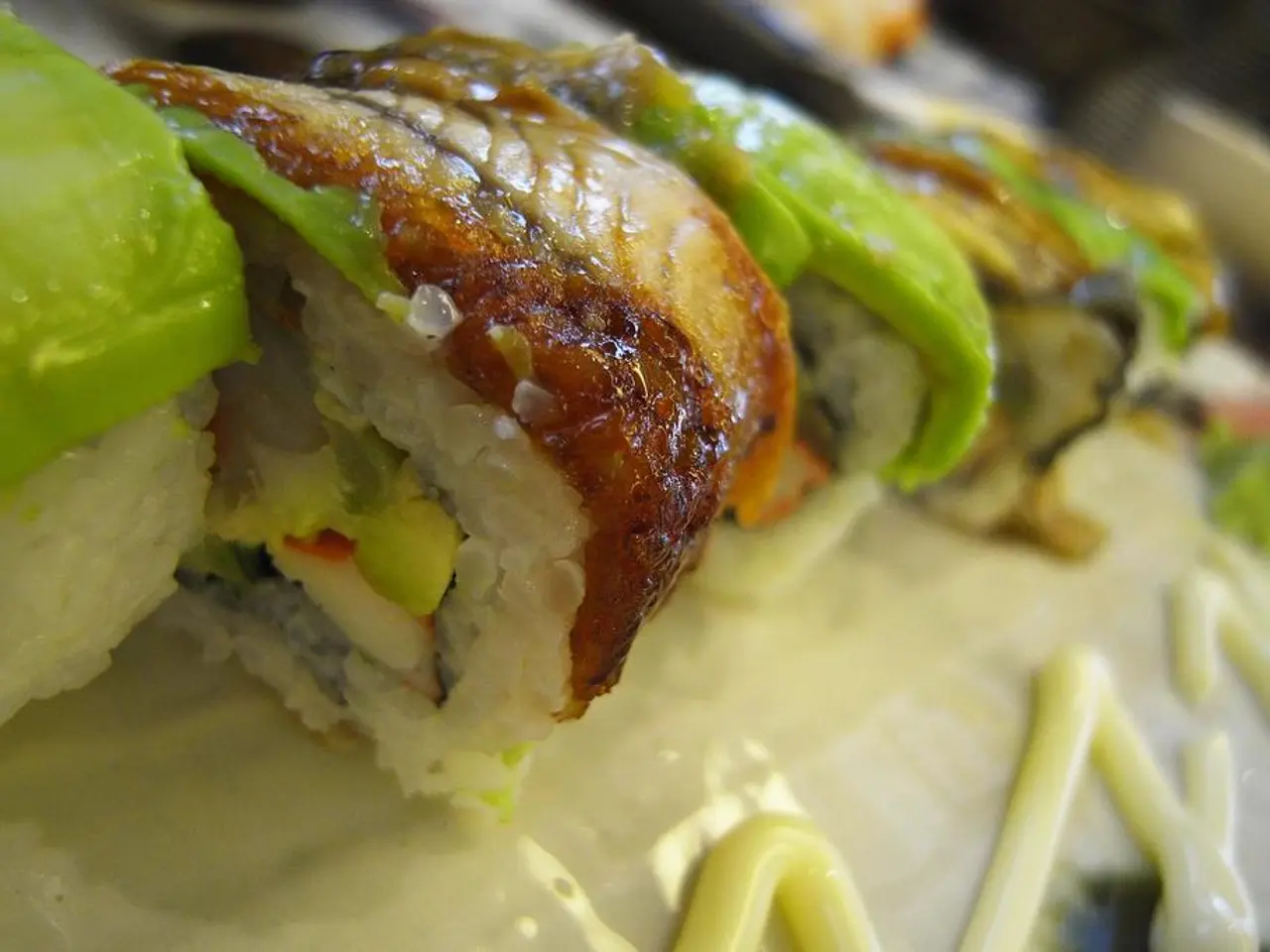Maintaining steady blood sugar levels and preventing post-lunch energy slumps: Dietary suggestions
In our daily lives, the body breaks down food and drink into glucose, a type of sugar, for energy. However, consuming certain foods can lead to spikes and crashes in blood sugar levels, which can be uncomfortable and potentially harmful in the long term.
To avoid these spikes and crashes, it's best to focus on carbohydrate sources with a low glycemic index. These include whole grains, legumes, vegetables, and fruits high in fiber, such as brown bread, barley, steel-cut oats, quinoa, buckwheat, and certain fruits. These foods release glucose more slowly into the bloodstream, helping to maintain stable blood sugar levels.
Pairing carbs with protein or fat can also help reduce spikes and crashes. This combination can help keep a person full for longer, and it can slow down the digestion and absorption of carbs, preventing a rapid rise in blood sugar.
Professor Sarah Berry of King's College London advises caution about focusing too much on blood glucose levels. She suggests making dietary choices that consider the impact of food on multiple factors, not just glucose. Diet, activity levels, stress, hormones, medications, and other factors can all contribute to dysregulation of blood sugar levels.
Post-meal crashes may be caused by blood sugar spiking and subsequently dropping too dramatically after eating. This is a normal physiological response and a sign of a healthy, functioning body. However, it's important to note that it's not possible to fully stop blood sugar from spiking after eating.
Chronically high blood sugar levels may be linked to oxidative stress, insulin resistance, and an increased risk of cancer. Symptoms of excessively high blood sugar include extreme thirst, frequent urination, tiredness, dry mouth, and post-meal crashes.
To gain a better understanding of blood sugar levels, continuous glucose monitors (CGMs) can provide insight. These devices measure blood sugar levels continuously, providing valuable information for those managing their blood sugar levels.
It's also important to avoid refined carbohydrates, such as white bread, white potato, white rice, and pasta, as they can cause a higher peak in blood sugar compared to other carbohydrate sources.
In conclusion, changing what and how we eat could help avoid spikes and crashes in blood sugar levels, contributing to a healthier lifestyle. By focusing on low glycemic index foods, pairing carbs with protein or fat, and being mindful of our overall diet, we can better manage our blood sugar levels and maintain a balanced energy throughout the day.
Read also:
- Administration's effort to dismiss thousands of Health and Human Services employees denied by the court
- Funds amounting to approximately 1.17 million euros designated for local meetings regarding nursing practices
- Advocating for nationwide Covid-19 vaccinations over targeted vaccinations for high-risk groups could potentially save thousands of additional lives in the United States.
- Competing strategies for addressing infertility come under scrutiny in the halls of Congress





